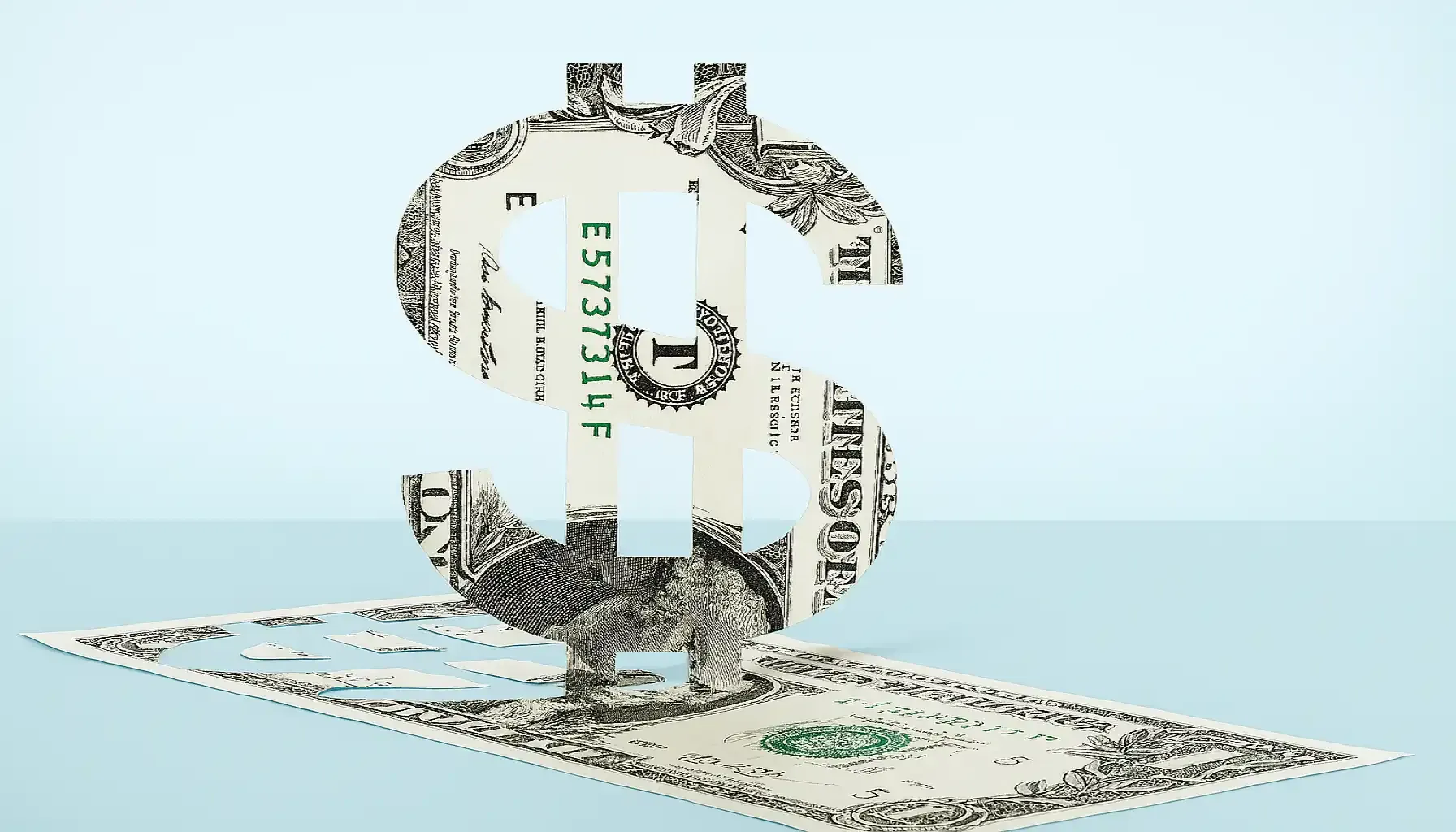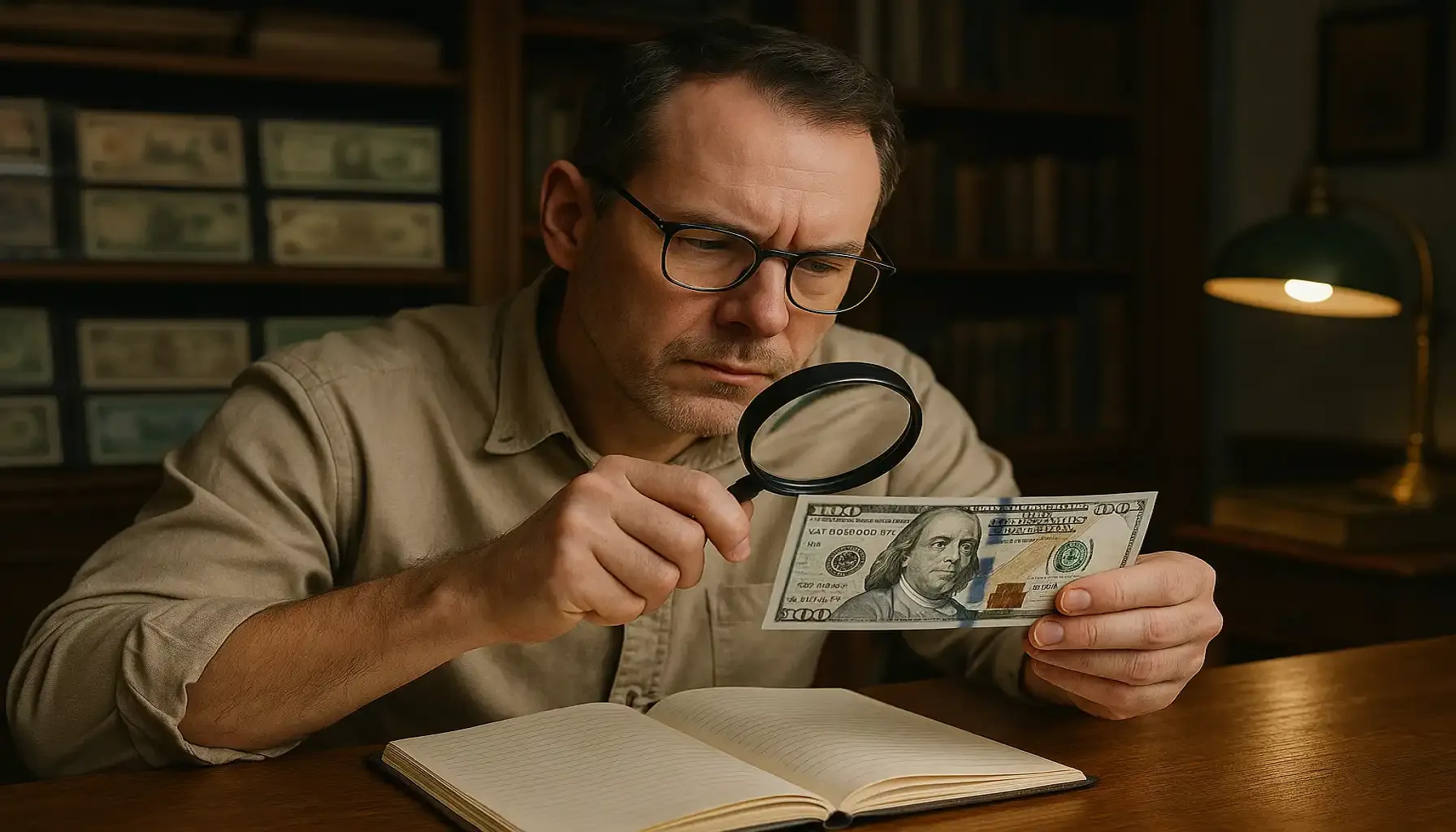Contents:
If you collect coins, you should know that there are some rare pieces that stand out for both their characteristics and value. In the world of numismatics, small differences in mint marks or the lack thereof can mean the difference between a coin being worth just ten cents or thousands of dollars.
Among these noteworthy coins are the 1975 and 1982 Roosevelt dimes, both of which present interesting variations that collectors want to get their hands on.
Let us talk about prices, including the 1975 dime no mint mark value, details, and what makes them special?
Numismatic descriptions of these coins that you can find in many coin collecting magazines:
Coin | Composition | Weight | Diameter | Obverse | Reverse |
1975 Roosevelt | 91.67% Copper, 8.33% Nickel | 2.27 grams | 17.91 mm | Profile of Franklin D. Roosevelt | Torch, olive branch, and oak branch |
1975 No S Proof | 91.67% Copper, 8.33% Nickel | 2.27 grams | 17.91 mm | Profile of Franklin D. Roosevelt | Torch, olive branch, and oak branch |
1982 Roosevelt | 91.67% Copper, 8.33% Nickel | 2.27 grams | 17.91 mm | Profile of Franklin D. Roosevelt | Torch, olive branch, and oak branch |
1982 No Mint Mark P | 91.67% Copper, 8.33% Nickel | 2.27 grams | 17.91 mm | Profile of Franklin D. Roosevelt | Torch, olive branch, and oak branch |
1982 Roosevelt (D Mint) | 91.67% Copper, 8.33% Nickel | 2.27 grams | 17.91 mm | Profile of Franklin D. Roosevelt | Torch, olive branch, and oak branch |
As you can see there is almost no difference in numismatic details. But what then separates them, or may be unites indeed?
More about the 1975 Roosevelt Dime
One of the most highly wanted coins in recent times is the 1975 no mint dime variety. The standard pieces were minted at several locations, with Philadelphia (no mint mark), Denver (D), and San Francisco (S) being the usual mints.
However, the rare 1975 No-S dime is a very sought after find. This error occurred when the piece meant for proof sets was mistakenly minted without the "S" mint mark at the San Francisco Mint.
If you’re lucky enough to have a 1975 no mint mark dime for sale or just as your collection piece in your possession, it’s worth getting it appraised, as these coins continue to rise in value.
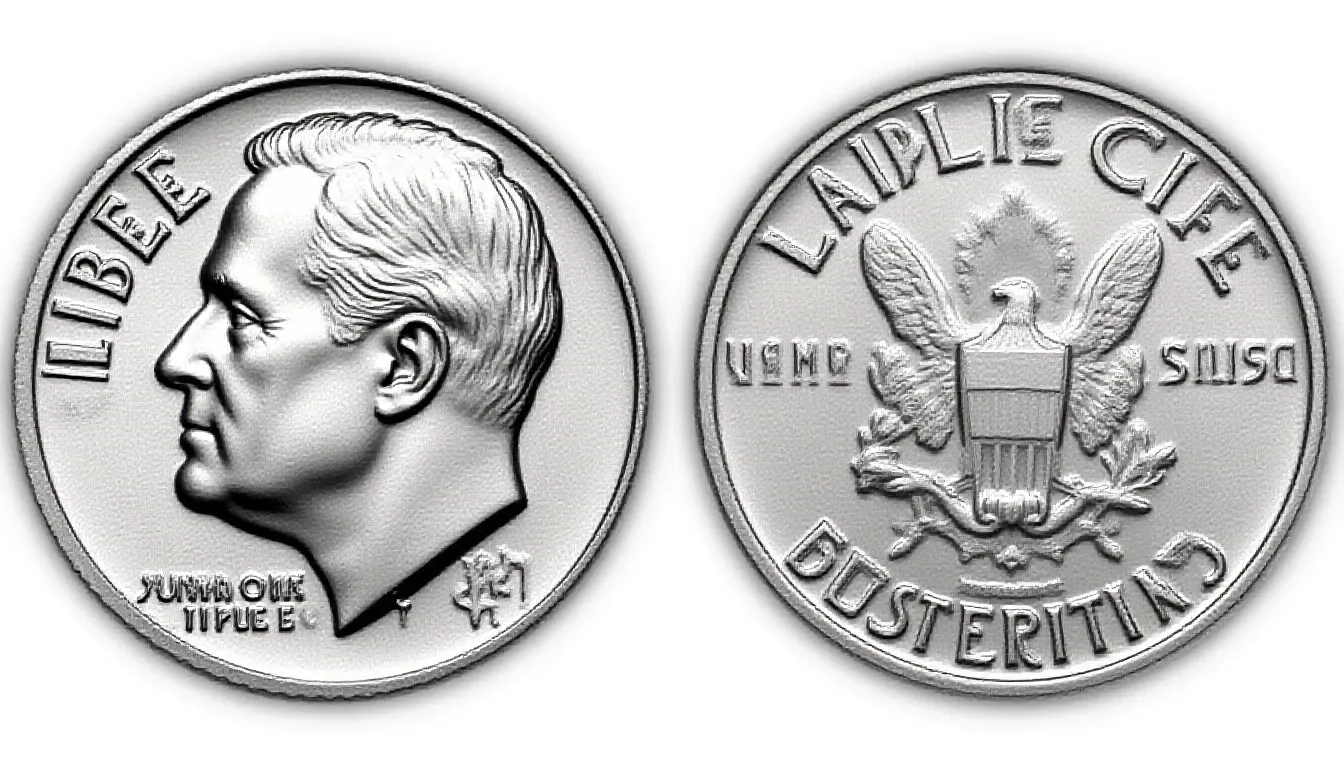
How much is a 1975 dime worth? The answer varies widely as we have understood above. One more time: it depends on whether it’s a commonly circulated coin or a 1975 No-S Roosevelt dime.
A circulated 1975 dime no mint mark is generally only worth about face value unless it is in exceptionally good condition, which could bring the price up to 50 cents or so.
On the other hand, 1975 dime no S worth is an entirely different story, where even lower grades of this error coin can sell for thousands of dollars.
It’s important to distinguish between a coin from the 1975 dime error list and standard Philadelphia-minted coins when appraising their worth.
How to Identify 1975 No S Dime without Mint Mark?
Where Is the Mint Mark on a 1975 Dime: Check the front (obverse) of the coin, just above the date near Roosevelt’s neck. Normally, those struck in San Francisco for proof sets bear an "S" mint mark. A "No S" one lacks this mint mark.
Proof Coin Features: The error only occurs in proof sets. Proof coins are struck with sharp details, mirror-like surfaces, frosted designs, etc. If your coin doesn’t have these characteristics, it is likely not a proof.
Inspect the Date: Check if the coin is from 1975. A genuine "No S" one should have the correct year.
Condition of the Coin: Since they were only released in proof sets, they should be in very good condition, with little wear from circulation.
Certification: Because of its rarity, it is recommended to have the coin authenticated and graded by a reputable coin grading service, such as PCGS or NGC, to confirm it is an authentic "No S" specimen.
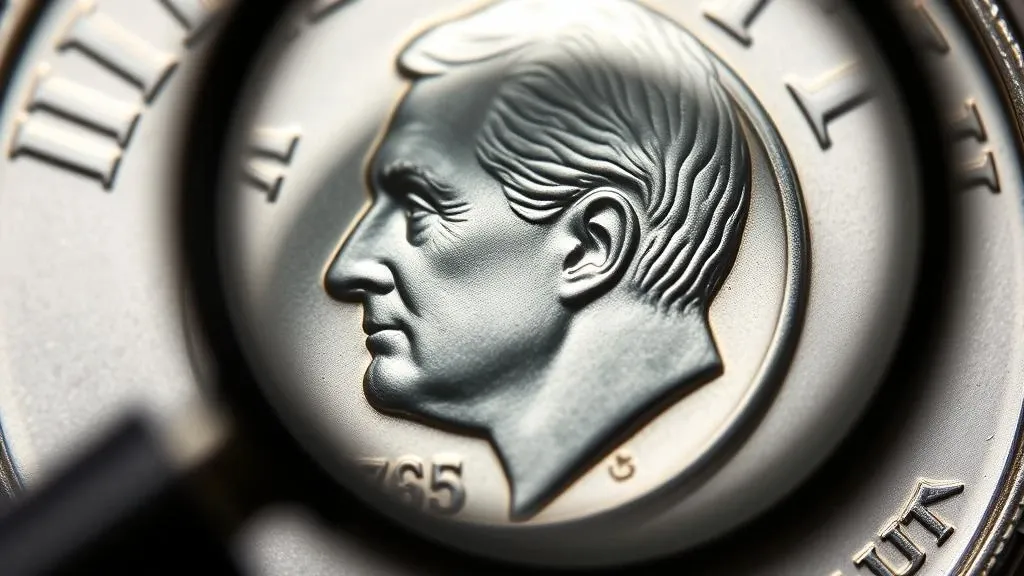
If you suspect you have one, remember that 1975 No S dime value could be highly expensive, as these are very rare and sought after by collectors.
1982 Dime to Be Explored
It’s also has its own quirks and appeals, especially due to the various mint mark errors that collectors are keen on discovering. For example, the 1982 no mint mark dime is another variant that is beloved by numismatists.
Much like the 1975 No S Roosevelt dime, this variety lacks a mint mark, which typically indicates it was minted in Philadelphia. In 1982, the Philadelphia Mint omitted the “P” from some pieces, and created what we now call the 1982 No P errors.
As far as 1982 dime value goes, the standard 1982 coins minted in Philadelphia (no mint mark) are generally worth their face value unless they're in mint condition or are one of the rare error coins like the 1982 no mint mark dime.
In circulated condition, a regular 1982 Roosevelt specimen typically doesn’t hold significant value beyond 10 to 30 cents, but an error coin can be around $150 to $300.
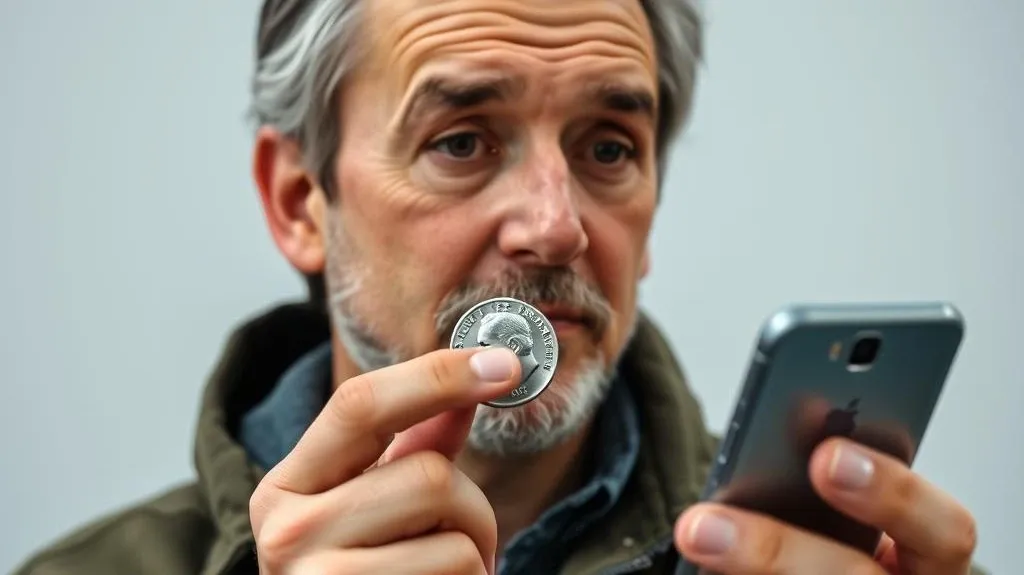
1975 vs. 1982 Roosevelt Dime – Value & Variety Table
Year | Variety | Mintmark | Type | Rarity | Known Examples | Grade | Estimated Value (USD) |
1975 | Regular Circulation | None (P) | Business Strike | Common | Millions | MS63–MS65 | $0.10 – $1 |
1975 | Regular Circulation | D (Denver) = 1975 D dime value | Business Strike | Common | Millions | MS63–MS65 | $0.10 – $1 |
1975 | Proof | S (San Francisco) = 1975 S dime | 1975 Proof Dime | Common (Proof Set) | Millions | PR65+ | $1 – $5 |
1975 | No-S Proof (Major Error) | (None) | Proof Only | Ultra Rare | 2 confirmed | PR68 | $349,600 (record) |
1982 | Regular Circulation | D (Denver) = 1982 D dime value | Business Strike | Common | Millions | MS63–MS65 | $0.10 – $1 |
1982 | Regular Circulation | None (P) = 1982 P dime value | Business Strike | Common | Millions | MS63–MS65 | $0.10 – $1 |
1982 | Proof | S (San Francisco) | Proof | Common (Proof Set) | Millions | PR65+ | $1 – $5 |
1982 | No-P (1982 dime error) | (None) | Business Strike | Rare | Several thousand | MS65 | $400 – $800 |
1982 | No-P (Error) | (None) | Business Strike | Rare | Several thousand | MS67+ | $1,500 – $3,000+ |
Rare 1975 Dime Missing Mint Mark Sells for $500,000!
Type: Proof
Year: 1975
Mint: San Francisco (S)
Error: Missing "S" mint mark
Known Examples: 2
Recent Sale Price: $506,250
The coin was part of a 1975 proof set produced by the San Francisco Mint. Proof coins from this mint are expected to bear the "S" mint mark. However, due to a minting error, this particular coin lacks the mint mark, significantly increasing its rarity and value.
The coin was inherited by three sisters from Ohio after the death of their brother, who had kept it in a bank vault for over 40 years. The family had originally purchased the coin in 1978 for $18,200 as a financial safeguard (1975 dime value no mint mark).
In October 2024, the coin was sold through GreatCollections, an auction house based in Irvine, California. The sale attracted over 200 bids and concluded with a final price of $506,250, setting a new record for this coin type.
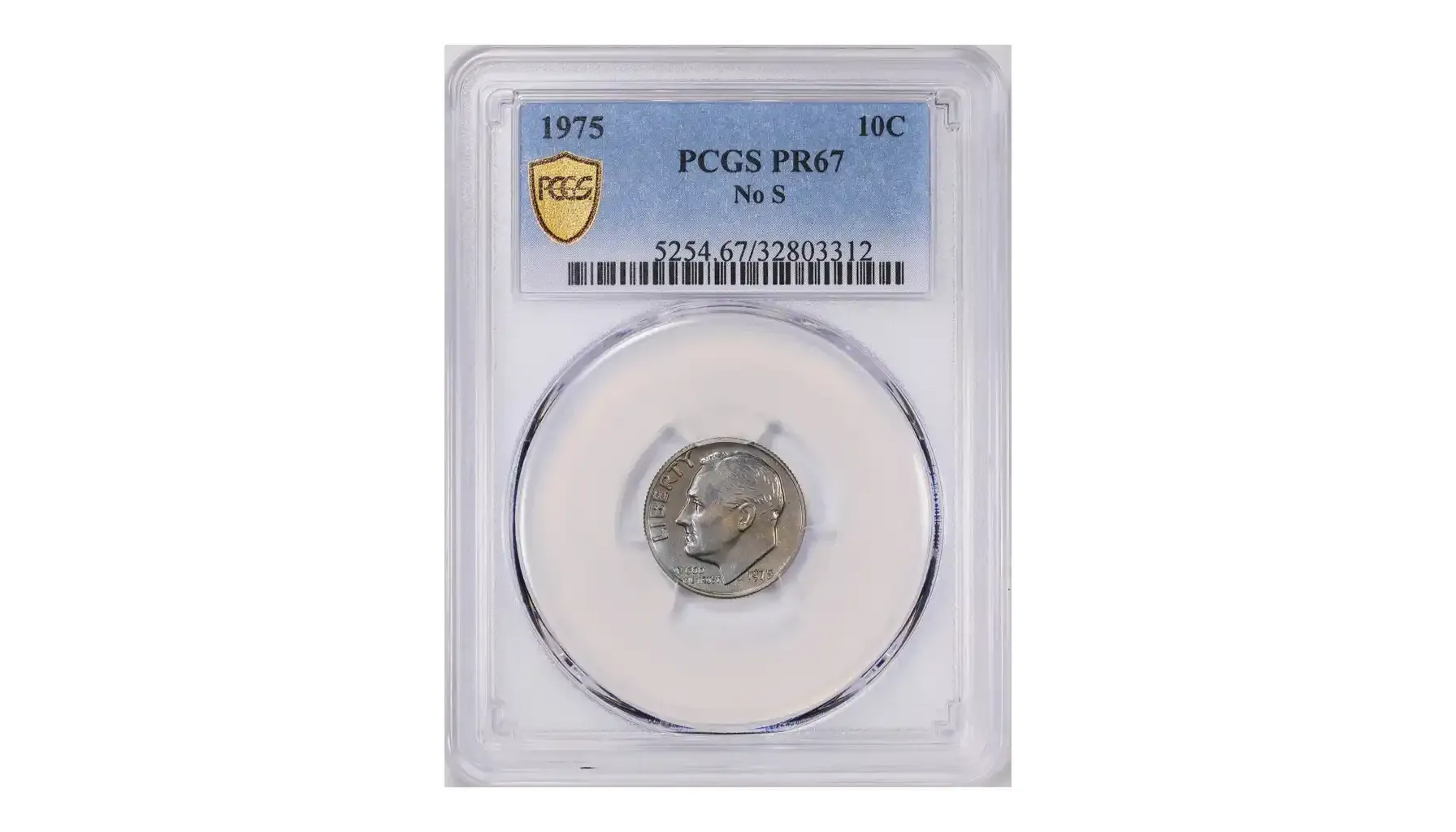
Explained: No P and No S
The absence of a mint mark is sometimes interesting for numismatists. A 1975 dime with no mint mark error coins can bring significant value to collectors. The missing mint marks were not intentional. That’s why many people want to have them.
Before professional grading, you can identify a coin you have with the Coin ID Scanner app. You just need to take a photo of a coin and upload it in the app. Voilà! You get all the necessary numismatic information just in a few clicks.
With all these variations, the hunt for rare specimens is a rewarding experience for collectors. If you ever come across one from the 1982 D dime error list or any other, it’s worth taking the time to have them professionally graded.
Even the more common coin may be expensive if it’s in pristine, uncirculated condition.

